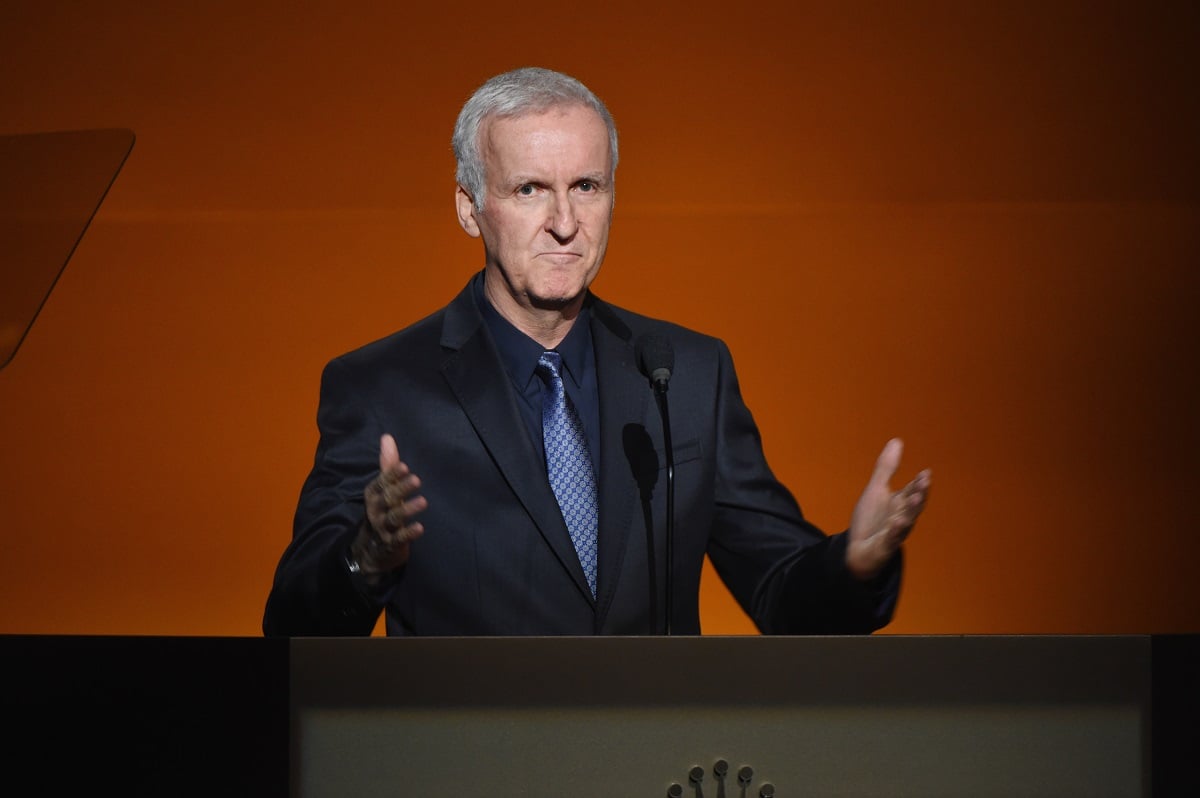
James Cameron Once Felt This Liam Neeson Movie ‘Degraded the Cinema’
James Cameron has contributed much to cinema with movies like Titanic, Avatar, and others. As passionate as he is about the business, he was once concerned about where Hollywood films were headed.
And he believed a Liam Neeson sci-fi movie helped illustrate his point.
Liam Neeson once starred in ‘Battleship’

Battleship was a 2012 sci-fi movie based on the popular board game of the same name. It featured Liam Neeson working alongside an ensemble cast that included Rihanna, Alexander Skarsgard, and Taylor Kitsch. The movie centered around a story of a group of Navy officers trying to thwart an alien invasion. The Taken star ended up in the film thanks to a phone call from the film’s director Peter Berg.
“Pete Berg called me up and said, ‘Do you want to be the Admiral of the Fleet?’ I said, ‘What is that?’ He said, ‘You get to call the shots, you get to come to Hawaii for a few days, and everybody salutes you,'” Neeson once recalled in an interview with Film Industry Network.
It wasn’t one of Neeson’s most well-received projects. Most critics gave Battleship negative reviews, as indicated by its 33% rating on Rotten Tomatoes. It also didn’t make a lot of money at the box-office. Although the-numbers reported it made $303 million worldwide, this wasn’t enough to compensate for the movie’s budget.
James Cameron felt ‘Battleship’ was ridiculous
One person who also wasn’t a fan of Battleship was James Cameron. But his issues with it weren’t necessarily targeted at the film’s quality. Rather, the film’s existence alone was enough to make The Terminator director concerned over the state of cinema.
“We have a story crisis,” Cameron once told Spiegel Online (via Contact Music). “Now they want to make Battleship the game into a film! This is pure desperation, because now the ‘Sequel Business’ governs Hollywood, or how we call it: the franchise.”
The Avatar director felt that Battleship spoke to a larger problem of film studios relying too much on already established franchises. He believed this dependence on material with a built-in audience did more harm than good to Hollywood.
“Everyone in Hollywood knows how important it is that the film before it hit theaters, is already a brand. If a brand has been around, Harry Potter for example, or Spider-Man, you are light years ahead…And there lies the problem. Because unfortunately [these franchises are becoming more] ridiculous. Battleship. This degrades the cinema,” he added.
What makes a great story to James Cameron
Cameron has always been passionate about original storytelling. The kind of innovation audiences might see in his own work has been inspired by films he’s seen in the past.
“I think it comes from my desire as a kid to do something artistic that would amaze people, you know? I would go to movies that would amaze me, whether that was a Ray Harryhausen film or Stanley Kubrick’s 2001: A Space Odyssey. I wanted to do nothing less than that. Those are the projects that I love: figuring out what might just be possible but hasn’t been done yet. I have always wanted to create new things, new hardware,” Cameron once told The Talks.
To the True Lies filmmaker, good storytelling in cinema often came down to a simple formula.
“I think a good story sets up a character or a small group of characters that you can somehow relate to, even if they’re in a very strange setting, maybe they’re in very strange jobs, but the relationships between the people are recognizable to us in some way,” he said. “Maybe it’s boy meets girl, maybe it’s father-son, maybe it’s husband and wife undergoing a divorce. Where the story is set we can relate to these universal kinds of relationships. Then that relationship must be tested. I always say, ‘All my movies are love stories.'”


